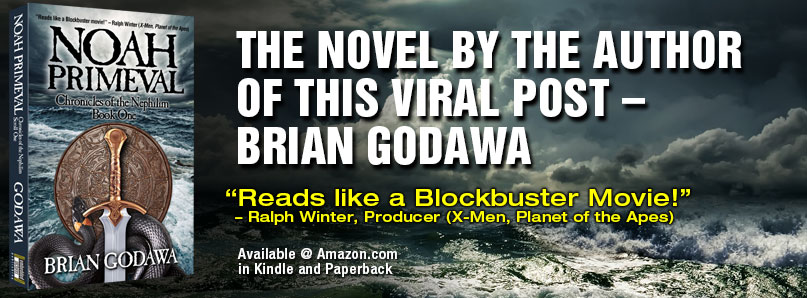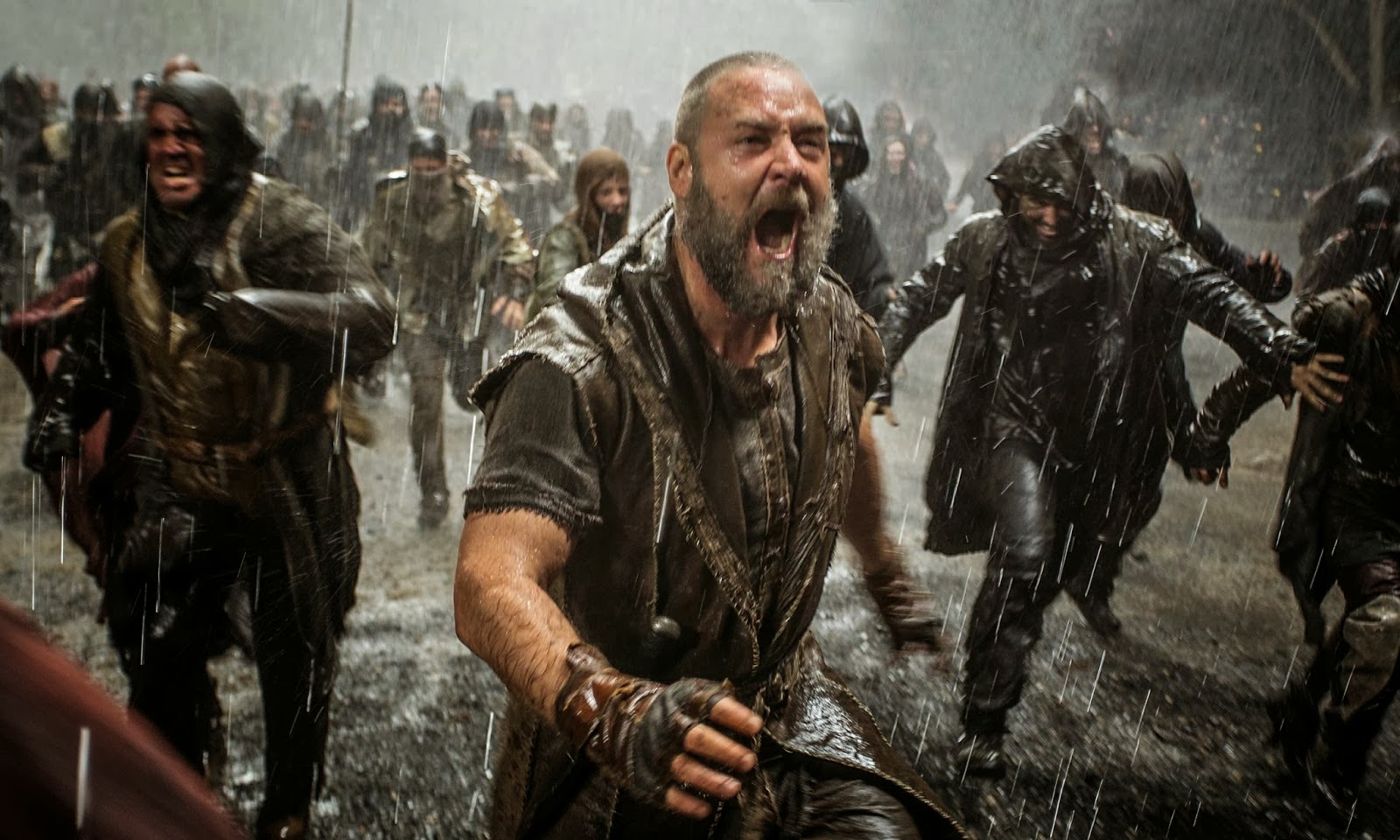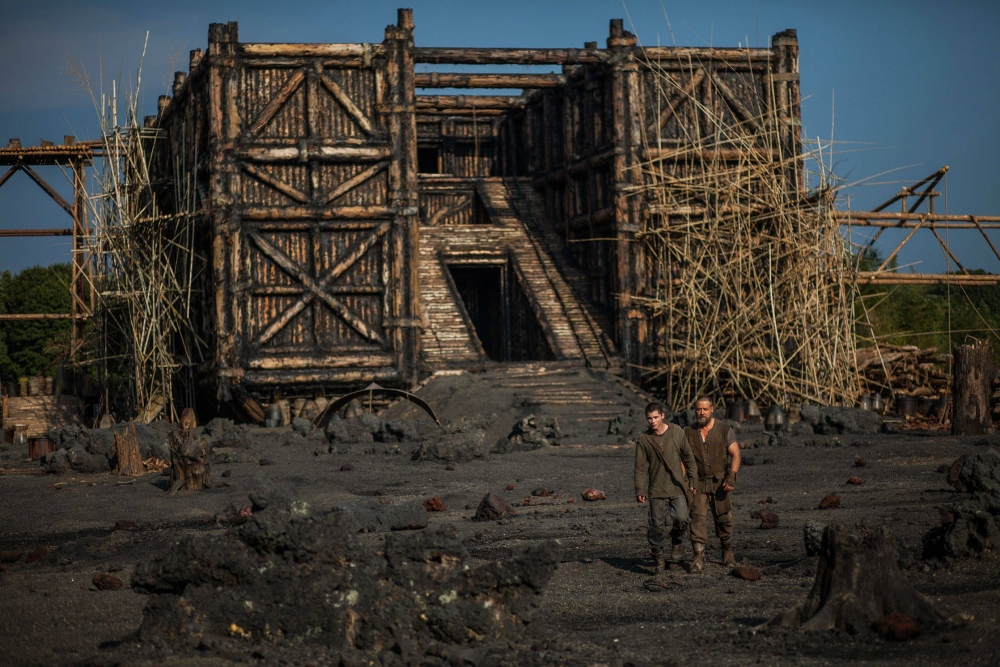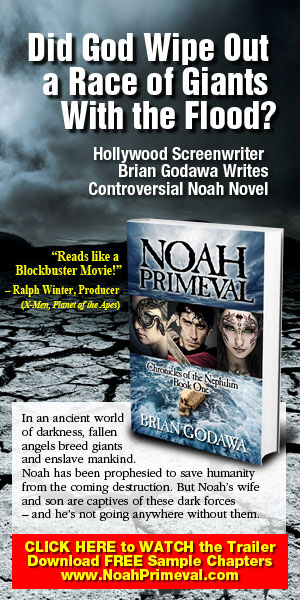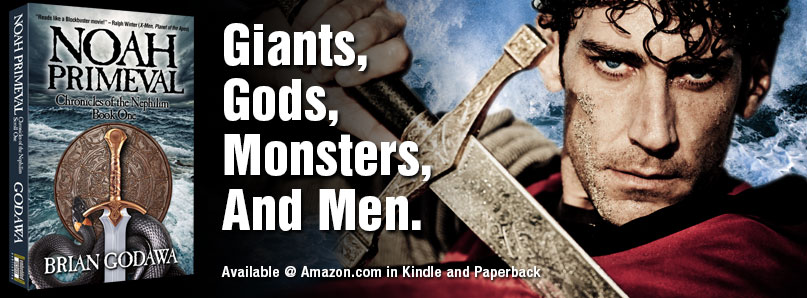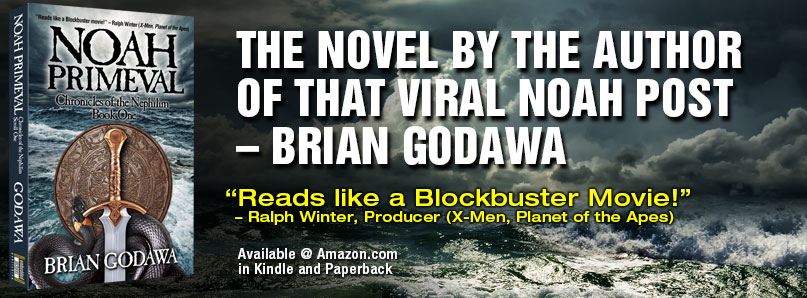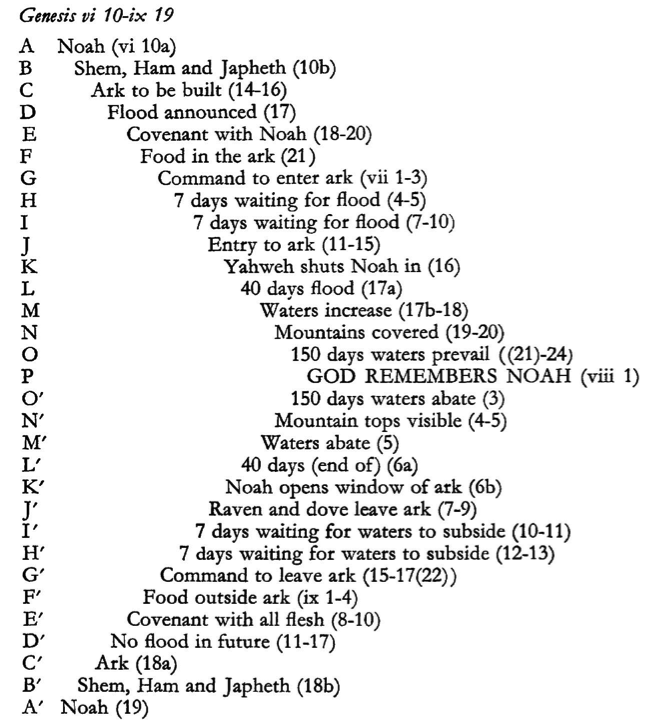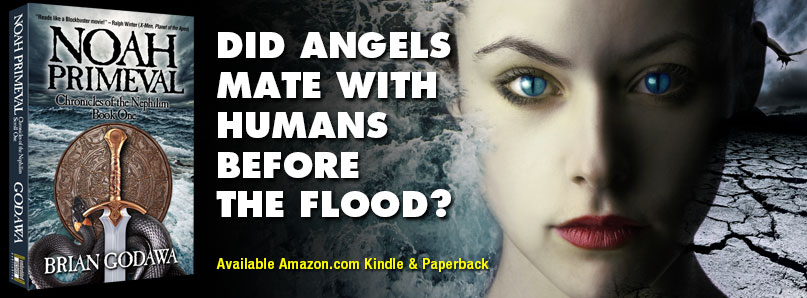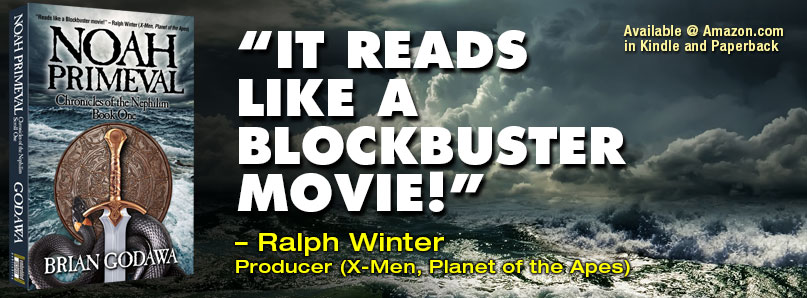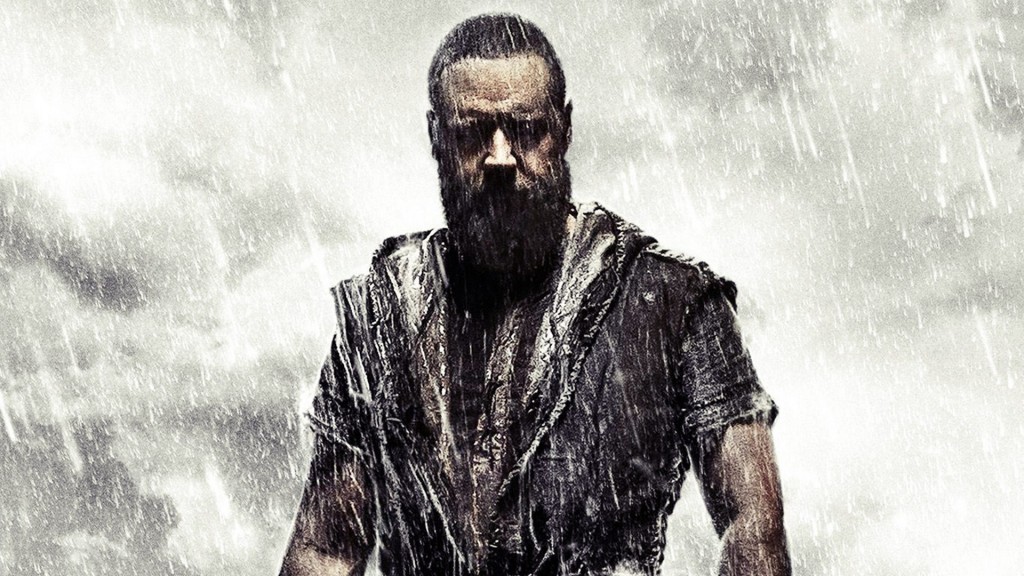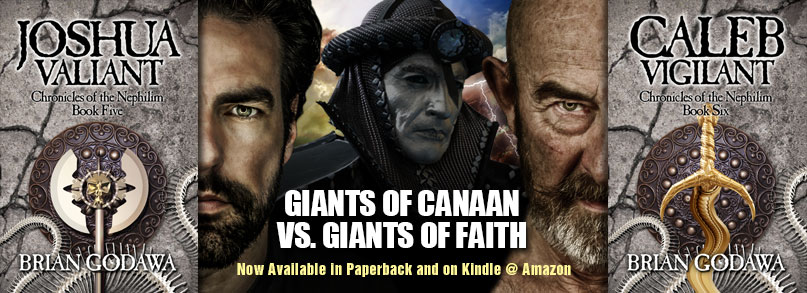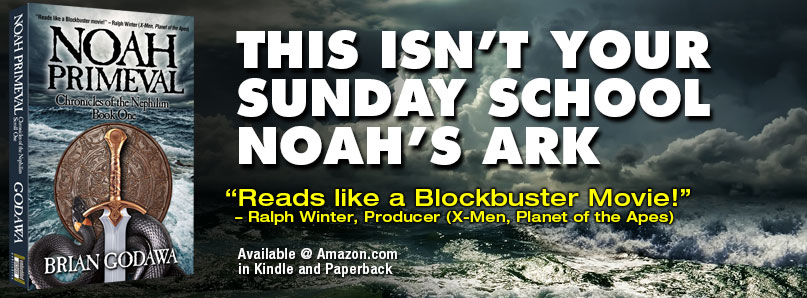I’m the “little guy” who wrote a blog post critiquing an early draft of the Noah script because of my own research into the subject matter. Well, when things went south in the studio screenings of the movie with religious audiences, the blood hound media scoured the internet for negative quotes, found my post, and it went viral.
I thus became Satan for Paramount and its elitist director of dark unsympathetic sick and twisted heroes, Darren Aronofsky.
I finally saw the movie. And now I know why Paramount and its hired Christian marketers would not let me into an early screening to correct my analysis of the early script of Noah.
Because I was right.
Not only that, but the differences between the script and the final movie are so negligible that I won’t have to change a single word of my critique. Just go back and read that and you’ll get the sick twisted agenda that seeps through every frame of this movie.
Wait. I take it back. It’s actually worse than the script.
But right up front, I apologize for giving so much time and attention to preparing people to watch the movie with a thoughtful eye to see what is good first and then describe the bad. Sometimes movies are so bad that what little good in them is so overwhelmed it’s like – well, like being drowned. My problem was I took it too seriously.
The Noah movie is ugly. It’s anti-human exceptionalism. It’s enviro-agitprop. And it’s poorly done. I can’t recommend this movie, not just because of it’s godawful theology (or should I say “earthology”), but because it’s godawful filmmaking. Like The Last Temptation of Christ. All the controversy overshadowed the fact that it was just plain terrible storytelling. Same here.
And people complain about Christian movies being so bad because they are agenda driven while suffering from poor storytelling and preachiness. Well, how about a new term: “Bad atheist movies” that suffer from poor storytelling and preachiness.
I have to say something to all those Christian leaders and film critics who saw the early screenings and kept defending the movie, saying in reference to my viral blog post, “The movie is different, the movie is different. You can’t talk about the movie cause you haven’t seen it.”
Shame on you. Shame on you because you knew when you were saying it, that it wasn’t true and I was right. You were tools. And Aronofsky is laughing at you behind your backs. He’s subverting your sacred story and he’s not even doing it well, but you’re still supporting it. I spoke up for the truth, but you wouldn’t, and you led me like a sheep to the… Okay, maybe I’m not that righteous. I’ve lied before too. As the movie Noah would say, “meat-eating is in all of us” or something like that.
Was Anything in it Good?
Well, uh… the movie captures a visual picture of the Flood that has never before been captured. That’s cool. Bursting waters, a Doré homage of people on a mountaintop being pulled into the rising waters. Okay, Flannel graph successfully overthrown. I liked that.
Oh, and uh people are shown as really evil so they deserved to die. That’s true. (Even though the evil is really more about meat-eating than anything else.)
Ummm.
Okay, now I want to talk about what I didn’t like about it.
“On the nose” dialogue. Flat characters that you just don’t care about. A sick twisted hero that you just don’t care about. Look, I know your hero has to have a character flaw, but this is so extreme that you can’t stand Noah, and you just want to leave the theater.
Noah becomes so convinced that the wickedness of man is in everyone (that is the original sin of being bad to animals and the earth – and did I say meat-eating, you carnivores?) that they all deserve to die, including his family — and then Noah becomes obsessed with killing his newborn granddaughters on the ark. Of course he doesn’t. That’s good. Whew. Not. Good. Enough.
Aronofsky gave us his “brilliant” portrayals of sick twisted drug addicts, sick twisted wrestlers, and sick twisted ballerinas. And now, in a fit of creative originality, a sick twisted Noah! Do you think maybe there’s a pattern here that might say something more about Aronofsky than anything else?
The fact that Noah wrestles with justice and mercy through the story is a good thematic idea. Justice without mercy is cruelty, but mercy without justice is also cruelty. But as Aronofsky said in an interview Noah’s journey is God’s journey of being so judgmental that he has to learn mercy. Because you see, Aronofsky has said he is a humanist. Humanists believe man is the measure of all things and man is not created in God’s image, God is created in man’s image. So it makes sense within his atheism to portray God as learning to be more merciful since God is merely an extension of man’s own imagination.
Remember when I said the script has Noah as a humanist who is more compassionate than God because he just can’t bring himself to kill his family like God wanted him to? Still in there. Yep.
Cliché stereotypical bad guy. Now whenever you want to know who a storyteller hates, look at his bad guy’s belief system and rationale and you’ll find a comparison to a modern day counterpart. Okay, so Tubal-cain is the bad guy. He is an urban “industrialist” (the movie calls the cities, “industrial”) who mines the earth for resources, claims property rights to owning land, hunts animals, eats meat, uses a primitive gun (I’m not kidding you, he probably got it from ancient aliens), he keeps emphasizing that man is created in the image of God and superior to the animals, and that we are supposed to subdue them and have dominion over them. All this while he rapes, murders, pillages and eats meat. So that kind of thinking is supposed to lead to that kind of evil behavior, got it? Sooooo, let’s see, who are those in todays’ world that believe in industry, mining for energy, private property rights, in hunting, guns, and say that God created man in his image to have dominion. Tubal–cain is basically an evil caricature of Judeo-Christian Western civilization. Seeing behind the shallow stereotype of evil reveals as much about the storyteller’s perception of what worldview he considers leads to such evil.
Christians, you are tools being played if you think that this movie is anything BUT a subversion of the Biblical God and an exaltation of environmentalism and animal rights against humans. Those who say that hurting the earth is just part of the sins of mankind in the story are missing the deeper point. No matter what “sins” of man that are portrayed in this story, they are only expressions of the ultimate sin, which is to sin against the earth. Every time it talks about man’s sin and God’s intent, the context is always “creation” not God, and not man as God’s image. The guy who preaches “man as God’s image” is the villain. “Creation” as in “Nature” is the metanarrative here, NOT God.
For those of you Christians who are fooling yourselves, just ask yourself this: Does Aronofsky believe in the God of the Bible as holy or in the earth as holy? I think you know the answer. And it ain’t both.
The very first thing said and repeated later is “In the beginning, there was nothing.” Now folks, Aronofsky is an atheist. He is subverting your Creation narrative that says “In the Beginning God…” not “Nothing.” Atheism believes that everything came out of nothing. And they say Creationists believe in irrational anti-science fairy tales!
Even in the end, Aronofsky’s humanism subverts God when Noah has his revelation about God’s purpose. Why didn’t God tell him whether or not to kill those little granddaughters so that the human race would never again corrupt Mother Earth? He kept asking, but God was silent. His daughter-in-law tells him “because he wanted you to decide if man was worth saving.” You see, it’s all up to man. God is not the one to decide if man is worth saving, MAN is. Because of course, in Aronofsky’s humanistic atheistic universe, God is only a belief, not a real being, and man must make the ultimate decisions of value and dignity.
Well, I say no thank you Mr. Atheist. That leads to guillotines, gulags, and gas chambers – which were all spearheaded by ATHEISTS.
Aronofsky has hijacked the Biblical narrative and subverted it to preach his secular humanistic atheist enviro-worship. He said himself that the story is just a myth that he turned into a prop for environmentalism. But its not even good preaching. It’s cheesy atheist preaching.
I found it telling that the movie that stresses so much about how bad meat-eating is, would fail to include the fact that God himself killed animals to clothe Adam and Eve, and that righteous Abel sacrificed animals as worship to God. He was after all, a shepherd of herds. And lastly that regardless of any alleged vegetarianism before the Flood, God decreed after the Flood that all living things were good for man – to – EAT! In the Bible, Noah was a member of PETA all right: People Eating Tasty Animals. But of course, that doesn’t fit the environmentalist/animal rights agenda. THAT God is evil to them. But you can see where all the attacks against Christians for nitpicking “unbiblical details” is not an entirely fair accusation. Because sometimes, those details are changed because the director is subverting the story to spin it to his ideological agenda against the text.
I heard Mr. Aronofsky is a vegan. He better be, after watching the hate fest against meat-eating in this movie. I’d like to invite him over to an animal rights barbecue to discuss the moral and intellectual impoverishment of atheistic humanism. And I would love to learn how he powered that movie set and production with solar and wind power. Must have been a real miracle. Oh, you mean he burned fossil fuels to make the movie, just like Tubal-cain? Oh, that’s right; Celebrities get a Green pass for their conspicuously Nephilim-sized carbon footprints.
But the topper has got to be the Rock People. They are supposed to be the Watchers that fell from heaven and took on cooled magma as their bodies, and now they are helping Noah. But they look like goofy ancient Transformers who, instead of transforming into cool cars and trucks, just transform into – well, rocks. They completely make you suspend your suspension of disbelief because they are so goofy. Remember Jar Jar Binks? Yep, that bad. I won’t even go into how wrong Aronofsky got the Watchers, which were bad guys in the Biblical and Jewish legends, but he makes them good guys! But that’s in my earlier critique.
The special effects, from the weak opening graphics to the alien-like luminescent bodies of Adam and Eve, to the most unscary serpent I have ever seen in a movie, to the silly looking large Rock People, the visual imagery is that of a B-grade movie. Where did that $130 million go? To Solyndra and Al Gore? You watch the movie asking yourself, is the director trying to make some kind of “artistic statement” by using cheap looking special effects? Or is he just so used to making low budget movies that he doesn’t know how to do it any better?
But in the end, Noah does realize his extremism was all wrong and that he should “be fruitful and multiply and replenish the earth.” So maybe I’ve got it all wrong. Maybe Aronofsky is a crypto-Christian who is secretly trying to show that atheist environmentalism is obviously insane and immoral and leads to murdering humans in the name of compassion to animals and the earth.
Or maybe, like today’s environmentalist anti-human exceptionalism, he cannot see the irrational contradictions of his own beliefs that deconstruct.
At least Avatar, with its naked pagan earth worship, has a ring of more authenticity than trying to subvert someone else’s sacred narrative with silly rock people and bad guys who cling to their guns and eat meat. But also because Avatar is just a well made pagan movie.
Noah is a poorly made atheist movie. Noah tanks.
P.S. I am not now, nor have I ever been a card carrying member of the oil company cartel.
